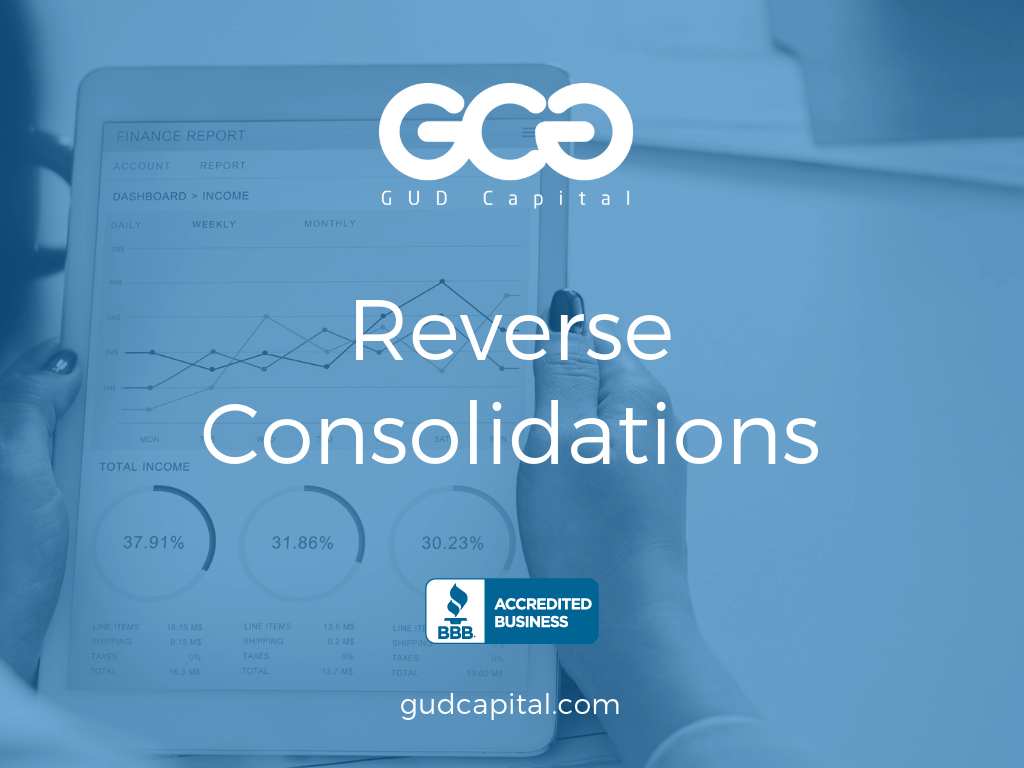Reverse Consolidations for Cash Advances
Small business lending options aren’t always plentiful for today’s small businesses. Obtaining a loan from a conventional bank or SBA lender isn’t easy, with these institutions approving as few as 20% of small business loan applications. With that having been said, small businesses sometimes still need to obtain financing to help with working capital purposes. When a conventional lender declines to provide financing to a small business, they may have to search the alternative funding market for financing options.
Quick-jump to the following reverse consolidation sections:
One option that is quite easy for a small business to obtain is a financing product known as a merchant cash advance or business cash advance. While these funding options aren’t cheap, they can come in handy for a small business in need of immediate capital. But every now and then a small business may find their cash flow severely hampered by the stress multiple cash advances and will seek MCA consolidation options. For businesses in look for an option to help deal with this cash-crunch, an option could be a Reverse Consolidation. In this article we’ll look at how a reverse consolidation may help your small business.

What is a Merchant Cash Advance?
A merchant cash advance is a type of short-term business financing almost solely used for working capital purposes that involves the sale of some of the small business’s future revenue in return for immediate financing. Merchant cash advance can range anywhere from 2-24 months, but most common terms usually go up to 12 months. After a small business is funded with the merchant cash advance, the funder will collect repayment by either splitting the small business’s merchant account revenue, or by pulling payments directly from the small business’s bank account via Automated Clearing House.
Merchant Cash Advance Stacking
A merchant cash advance is a type of short-term business financing almost solely used for working capital purposes that involves the sale of some of the small business’s future revenue in return for immediate financing. Merchant cash advance can range anywhere from 2-24 months, but most common terms usually go up to 12 months. After a small business is funded with the merchant cash advance, the funder will collect repayment by either splitting the small business’s merchant account revenue, or by pulling payments directly from the small business’s bank account via Automated Clearing House.
Consolidation Options?
Before we explain the ins-and-outs of reverse consolidations, lets first look at all the merchant cash advance options:
- SBA Consolidation: Uses a SBA loan to consolidate all advances into one conventional loan with an SBA enhancement. Business owner must have fantastic credit, must be profitable, and have a suitable amount of personal and business collateral to cover the loan. Process will take 30-60 days depending upon real estate collateral used.
- Commercial Real Estate Consolidation: Uses a business’s or personal real estate as collateral to provide financing to consolidate the cash advances into a first mortgage. If there is already a mortgage in place, the lender will look to take-out the original mortgage and replace with larger mortgage that will allow the business to net enough cash to consolidate the cash advances.
- Factoring Accounts Receivable: Uses a business’s unpaid invoices from their customers as a basis for financing. The factoring company will purchase the business’s unpaid 30-90 A/R, and forward the great majority of the invoice’s value to the small business – which is then used to consolidate the advances.
- Alternative Cash Advance Consolidation: This type of alternative financing simply buys-out merchant cash advances, and replaces with more affordable financing over a 1-5 year term. Requires a minimum of two years profitability, 700 credit score and sufficient collateral.
- Reverse Consolidation: A reverse consolidation leaves the multiple merchant cash advances in place, but the reverse consolidation company takes care of the cost of the daily payments. In return, the small business pays the reverse consolidation company a fraction of what they had been paying – but for a longer term than they had with the original advances.
How a Reverse Consolidation Works:
- Reverse consolidation funder deposits money into business bank account to cover all merchant cash advance payments for the week.
- Single payment is made each week from business to reverse consolidation funder that is a fraction of what the business currently pays each week for their advances.
- Term of reverse consolidation is longer than term of cash advances, therefore payments are made to reverse consolidation provider after all cash advances are paid-in-full
Reverse Consolidation Details
A reverse consolidation doesn’t remove merchant cash advance debt, but instead a reverse consolidation is a financing tool meant to help a business weather the cash-flow crunches associated with stacking multiple cash advances. With a reverse consolidation the cash advances aren’t eliminated, but simply managed in a way that reduces the stress of having enough money to cover expensive daily payments. Under a reverse consolidation the daily payments to the cash advance companies are still made, but the reverse consolidation company deposits the cash into your account to cover those payments. Then, in return, once a week a payment is made to the reverse consolidation company that is 25-50% less than the business would have paid out-of-pocket to cover their cash advances. The reverse consolidation funder will keep covering the costs of the cash advances until they are all paid off, and then the term extends a little beyond until the reverse consolidation funder is fully-paid the agreed upon repayment amount.
Benefits of a Reverse Consolidation
- Reduces payments by up to 50%
- Extends term by up to 50%
- Potentially access more cash immediately
- Allows merchant to bridge until healthier options are completed
Drawbacks of a Reverse Consolidation
- Doesn’t reduce total debt, but can add to it
- Will have to make payments for longer term than original advances
Summary
As you can see, a reverse consolidation is one of multiple options to help reduce the cash-flow crunches associated with stacking multiple merchant cash advances. While a reverse consolidation will help reduce your daily payments, they don’t reduce or eliminate debt. In fact, a reverse consolidation will increase the total cost of borrowing over the long haul. With that having been said, there is a real benefit to using a reverse consolidation to reduce daily payments and, instead, only have to focus on making weekly payments that are 25-50% less than you would be making now. If you are interested in a reverse consolidation and are looking for help in obtaining one, please reach-out to one of our reverse consolidation experts, and we’ll help you navigate the process.




















